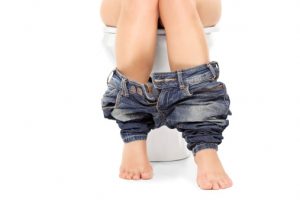
Distended bladder can be quite painful and when severe, life-threatening.
Causes and symptoms of distended bladder
In other cases, medications can also lead to distended bladder. If you notice changes in your urination habits upon starting a prescription medication, you may wish to speak with your doctor. Over the counter medications can also cause a distended bladder. Common culprits are antihistamines and other medications intended to treat a cold or allergies.
Medical conditions, like blood clots and stroke, can contribute to distended bladder as they affect the spinal cord. Lastly, a distended bladder can be a side effect of the anesthesia from a recent surgery.
Symptoms of a distended bladder include:
- Lower abdominal, lower back or chest pain
- Bladder leakage
- Inability to urinate (Anuria)
- Small amounts of urine that are expelled
- Straining while urinating
- Delay when attempting to urinate
- Fever or abnormal sweating
- Red or bloody urine (Hematuria)
- Urination which is painful
- Incontinence
- Frequent urination at night (Nocturia)
- Full bladder
- Bladder damage or kidney failure
- High blood pressure
- Anxiety
Treating distended bladder
Some home remedies to treat distended bladder include:
- Taking a warm bath to promote urination
- Increase physical activity which can boost urination
- Have running water to promote urination
If home remedies don’t work to treat bladder retention, medical intervention may be required. Bladder drainage, urethral dilation, urethral stents, prostate medications and even surgery are some forms of medical treatments for distended bladder.
Early detection and treatment of bladder distention are important; if undiagnosed and left untreated it can lead to complications. Complications of distended bladder are urinary tract infections, bladder damage and chronic kidney disease. If you begin to notice changes in the way you urinate and are concerned you have distended bladder, speak with your doctor for early detection.